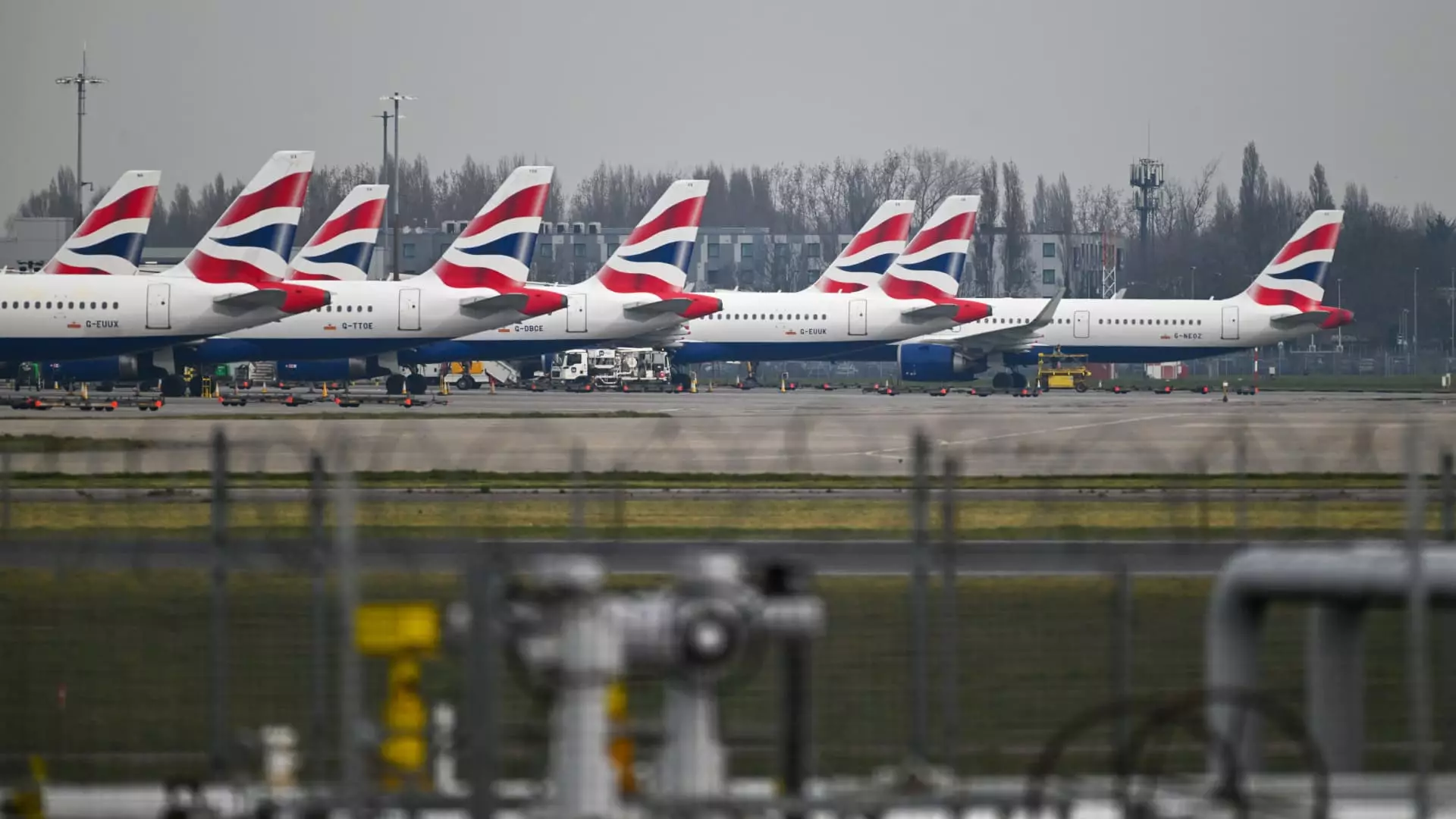In an eye-opening incident that has left countless travelers stranded and disrupted European travel significantly, a fire at a nearby electrical substation led to a catastrophic power outage at Heathrow Airport, the busiest airport in Europe. The calamity unfolded on a Friday, a day that is typically bustling with travelers eager to start their weekends. Instead of soaring into new adventures, over 27,000 passengers found themselves in limbo as more than 800 flights were canceled, showcasing a glaring failure in the airport’s infrastructure management.
Heathrow has long positioned itself as a hub of efficiency and connectivity, yet this incident raises serious questions about the robustness of its operational protocols. The fact that a single electrical failure could ground an airport of this scale reveals a shocking vulnerability that has been overlooked for far too long. The incident isn’t merely an inconvenience for travelers; it reflects systemic issues that could have severe implications for national infrastructure. As we enter an age where personal freedoms of travel are paramount, it is unnerving to see how rapidly such freedoms can be curtailed due to a single point of failure.
Public Response and Government Accountability
In the fallout from the incident, public reaction has ranged from despair to furious frustration. Passengers were advised to stay away unless explicitly directed to the airport by their airline, effectively trapping many in a chaotic scenario as they sought to navigate the murky waters of alternative travel arrangements. The transport sector’s reliance on a singular power source, as criticized by IATA’s Willie Walsh, comes into sharper focus. Such a “total planning failure” prompts the larger question: who will bear the financial repercussions of this massive disruption? It seems unjust that travelers should be left vulnerable and at the mercy of airlines amid an infrastructural disaster caused by external factors.
Britain’s energy minister, Ed Miliband, described the situation as “catastrophic,” underscoring the implications of the fire on the critical infrastructure that supports an international travel network. Discussions surrounding government accountability in managing public safety standards in transport infrastructure are imperative. As someone wary of entrusting too many resources into public hands, I find it troubling that our major airports can be so easily compromised.
The Broader Implications: From Passenger Traffic to Cargo Logistics
The ripple effects of this fire extend beyond just passenger flights; over 4,000 tons of cargo transit through Heathrow each day, contributing heavily to the supply chain. The incident inadvertently highlights the fragility of logistical networks that rely on a centralized hub. The consequences of travel delays have economic ramifications that can stretch into almost every sector dependent on prompt deliveries and cargo spaces.
The substantial economic impact on the airlines, especially British Airways — who cancelled a significant portion of their flights — compounded by the potential loss of income from the affected cargo transport, adds a layer of urgency to the situation. When we think about UK-based industries relying on timely deliveries, the ramifications of this outage paint a worrisome picture. Such widespread disruption not only frustrates travelers but can also reverberate through businesses that count on air logistics for their daily operations.
A Call for Resilience in Our Infrastructure
Miliband’s declaration focusing on “lessons learned” beckons immediate attention to fortifying Britain’s critical infrastructure. It’s not just a matter of restoring power; it’s about understanding how to optimize resilience against future disasters. It’s essential that we implement robust contingency plans and develop alternative energy sources for situations like this. Forum discussions surrounding the safety of our infrastructural design should involve all stakeholders—government, service providers, and most importantly, the passengers that depend on these services.
As an advocate of a center-right ideology, I am inclined to believe that the private sector must also take responsibility to mitigate risks. It seems imperative for airports like Heathrow to strategize for a balanced allocation of accountability—addressing both operational standards and financial implications of interruptions. Until significant changes occur, and other alternatives are put in place to safeguard against future outages, the people stand scornfully on the sidelines, witnessing firsthand a failure of governance and planning.
In summation, this tragic event is only a symptom of deeper systemic issues within our infrastructure management. It should serve as a wake-up call: the time for change is now. While travelers are caught in limbo, a national conversation around resilience and accountability in the public transport sphere is more necessary than ever.

